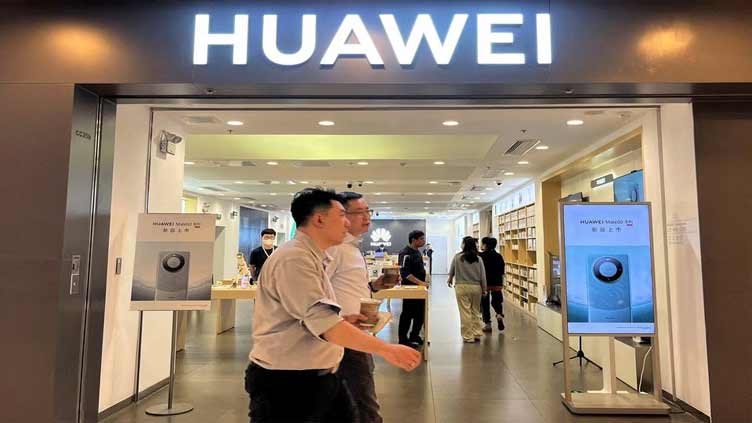US lawmaker calls for ending Huawei, SMIC exports after chip breakthrough

Technology
Huawei was placed on a trade blacklist in May 2019 over national security concerns
(Reuters) - The U.S. Commerce Department should end all technology exports to Huawei and China's top semiconductor firm following the discovery of new chips in Huawei phones that may violate trade restrictions, the chair of the House of Representatives' committee on China said on Wednesday.
The comments from Representative Mike Gallagher, an influential Republican lawmaker whose select committee has pressed the Biden administration to take a tougher stance on sending U.S. technology to China, come after Chinese electronics giant Huawei last week started selling a phone called the Mate 60 Pro. The phone contains a chip that analysts believe was made with a technology breakthrough by Semiconductor International Manufacturing Corp.
"This chip likely could not be produced without US technology and thus SMIC may have violated the Department of Commerce’s Foreign Direct Product Rule," Gallagher said in a statement. "The time has come to end all U.S. technology exports to both Huawei and SMIC to make clear any firm that flouts U.S. law and undermines our national security will be cut off from our technology."
Huawei was placed on a trade blacklist in May 2019 over national security concerns, forcing its U.S. suppliers and others to obtain a special license to ship goods to it. SMIC was added to the so-called entity list in December 2020, over fears it could divert advanced technology to military users.
The trade restrictions imposed on Huawei and SMIC include the Foreign Direct Product Rule meant to bar any company anywhere in the world from using tools from the United States to manufacture a chip for Huawei.
But suppliers to Huawei and SMIC have received billions of dollars' worth of licenses to sell U.S. technology to the companies despite their being on the trade lists, Reuters has previously reported. About 90% of the licenses were for sales to SMIC.
The U.S. Commerce Department's bureau overseeing export controls did not immediately respond to a request for comment.

